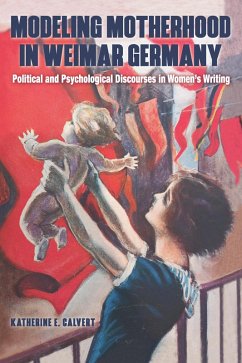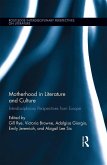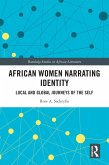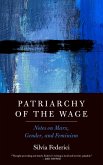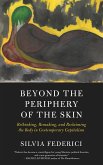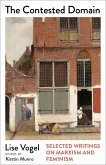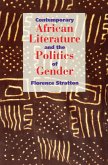Reveals how socialist discourses and psychoanalytic ideas shaped the modern models of motherhood envisioned by left-wing and socially critical women writers working in the Weimar press and literary spheres.
Women's experiences and opportunities in the Weimar Republic (1919-1933) were shaped by tensions between advances in women's rights and widespread adherence to conservative notions of gender roles and women's maternal duty. This book explores these tensions, which were particularly pronounced on the political left, by analyzing socialist and socially critical women writers' interventions in contemporary debates on gender and women's role in society. For women in Weimar Germany, writing represented a subversive medium through which they could individualize reproductive politics and imagine modern models of mothering.
Relatable and aspirational mothering practices and mother figures feature in the literary and journalistic texts examined in this book. Theoretical and instructional works (by Alice Rühle-Gerstel and Henny Schumacher) and examples from the Social Democratic women's magazine Frauenwelt demonstrate how women writers adopted and adapted emerging psychological ideas to position their texts as modern and authoritative. A close analysis of critically neglected didactic texts (by Hermynia Zur Mühlen, Maria Leitner, Elfriede Brüning, and Else Kienle) and socially critical popular fiction (by Irmgard Keun, Vicki Baum, and Gabriele Tergit) exposes how women writers envisaged models of motherhood and family that were compatible with their political beliefs and modern lifestyles. This book reveals a pragmatic discourse that advocated progressive policies regarding reproductive choice and the rights of single mothers while leaving notions of women's maternal nature and duty largely unchallenged.
Hinweis: Dieser Artikel kann nur an eine deutsche Lieferadresse ausgeliefert werden.
Women's experiences and opportunities in the Weimar Republic (1919-1933) were shaped by tensions between advances in women's rights and widespread adherence to conservative notions of gender roles and women's maternal duty. This book explores these tensions, which were particularly pronounced on the political left, by analyzing socialist and socially critical women writers' interventions in contemporary debates on gender and women's role in society. For women in Weimar Germany, writing represented a subversive medium through which they could individualize reproductive politics and imagine modern models of mothering.
Relatable and aspirational mothering practices and mother figures feature in the literary and journalistic texts examined in this book. Theoretical and instructional works (by Alice Rühle-Gerstel and Henny Schumacher) and examples from the Social Democratic women's magazine Frauenwelt demonstrate how women writers adopted and adapted emerging psychological ideas to position their texts as modern and authoritative. A close analysis of critically neglected didactic texts (by Hermynia Zur Mühlen, Maria Leitner, Elfriede Brüning, and Else Kienle) and socially critical popular fiction (by Irmgard Keun, Vicki Baum, and Gabriele Tergit) exposes how women writers envisaged models of motherhood and family that were compatible with their political beliefs and modern lifestyles. This book reveals a pragmatic discourse that advocated progressive policies regarding reproductive choice and the rights of single mothers while leaving notions of women's maternal nature and duty largely unchallenged.
Dieser Download kann aus rechtlichen Gründen nur mit Rechnungsadresse in A, D ausgeliefert werden.
Hinweis: Dieser Artikel kann nur an eine deutsche Lieferadresse ausgeliefert werden.

